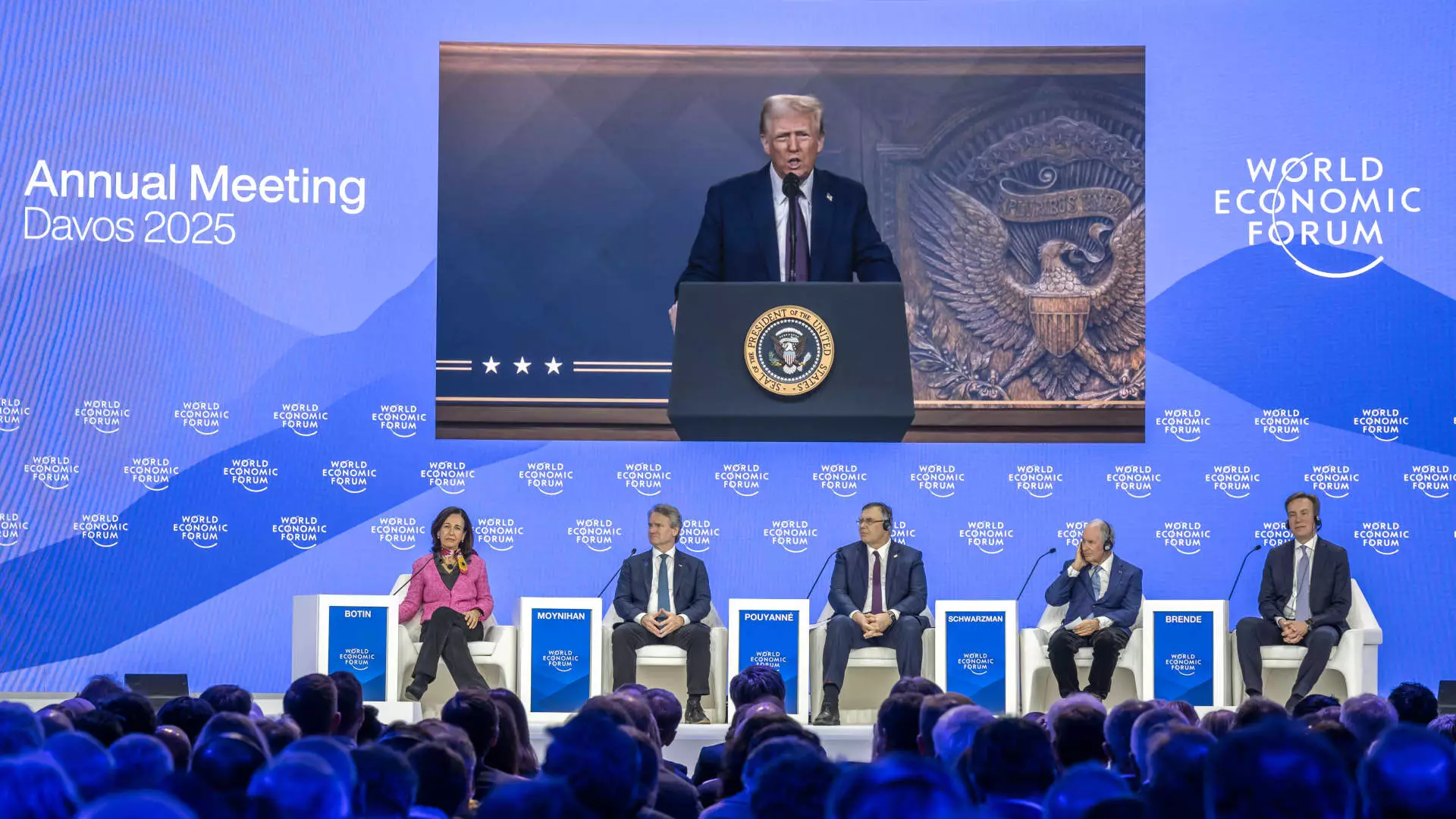In a recent address via video link at the World Economic Forum in Davos, Switzerland, former President Donald Trump reignited a contentious point in the political discourse surrounding corporate accountability and perceived discrimination against conservatives. Targeting the CEOs of America’s largest banks, Bank of America, and JPMorgan Chase, Trump alleged that these financial institutions were engaging in practices that purportedly denied services to individuals based on their political affiliations. This accusation aligns closely with themes from his 2024 campaign and reflects ongoing tensions within the intersection of finance and politics.
Trump’s choice of venue—a high-profile global economic summit—added a notable weight to his remarks. During a question-and-answer session that featured responses from Bank of America CEO Brian Moynihan and JPMorgan Chase CEO Jamie Dimon, Trump urged these banking leaders to reconsider their practices. The former president articulated, “I hope you start opening your bank to conservatives because many conservatives complain that the banks are not allowing them to do business within the bank.” This charged rhetoric aims to resonate with his base while challenging the banking sector’s ability to remain neutral and accessible to all customers.
In stark contrast to Trump’s assertions, both Bank of America and JPMorgan Chase have firmly rejected any notion that they discriminate against conservative clientele. Statements from representatives of these banks emphasize their commitment to serving a diverse customer base. A Bank of America spokesperson pointed out that their institution serves over 70 million clients and maintains no political litmus test. Furthermore, JPMorgan Chase’s representatives reiterated their adherence to legal necessities and regulatory standards, highlighting that they would never close accounts due to political beliefs. The banks’ responses underscore a pointed effort to distance themselves from the narrative Trump is weaving, fostering a narrative of inclusivity rather than exclusion.
These claims were further fed by a broader backdrop—that of banking practices evolving under the scrutiny following the 2008 financial crisis. Lenders faced escalating pressure to weed out clients in industries deemed higher risk for money laundering or fraud. This tightening led to a phenomenon where businesses like payday lenders and firearms dealers found themselves systematically “de-banked,” sometimes without adequate explanation. The term “de-banked” emerged from these actions, encapsulating the notion that certain industries or client bases could be deemed too troublesome or risky. Such complexities in banking practices lead to a tangled web of accusations regarding politically motivated decisions.
In navigating accusations like those Trump has revived, the banks engage with a fundamentally complicated legal landscape. State attorneys general, like Kansas’s Kris Kobach, have examined alleged discriminatory practices critically. Kobach’s letters prompted much of the discussion surrounding Bank of America’s account decisions and the rationale behind these closures. The bank has outlined that closures are generally based on due diligence involving accounts’ purposes and activities rather than political affiliations.
Bank of America had publicly refuted claims put forth by critics, including the assertion that they acted against religious or political beliefs. They disclosed that they have banking relationships with approximately 120,000 faith-based clients, thus signaling a commitment to inclusivity across the religious spectrum.
The implications of Trump’s remarks extend beyond mere rhetoric, with potential repercussions for both the banking sector and political strategies as the 2024 election approaches. The allegations made against these major financial institutions arrive during a time of significant political polarization, where issues of corporate accountability, financial ethics, and public trust increasingly influence voter sentiment.
In this politically charged atmosphere, influential figures within Trump’s sphere, such as venture capitalist Marc Andreessen, have corroborated Trump’s claims by revealing anecdotal evidence about startups facing barriers in accessing banking services. This lends a degree of credibility to the narrative and perpetuates the perception that banking practices may exhibit biases.
The fallout from the banking allegations is indicative of a broader ecosystem where financial institutions must navigate public perception, regulatory adherence, and the political climates surrounding them. As Trump’s claims continue to exert influence, the banking sector must respond thoughtfully, balancing their corporate values with the currents of political sentiment while safeguarding their reputation against allegations of bias.
In summation, Trump’s comments at the Davos summit highlight a powerful intersection between politics and corporate governance. The accusations against major banks, juxtaposed with their firm rebuttals, reveal the complexity surrounding issues of discrimination and access in financial services. As we move further into election season, it remains to be seen how these dynamics will reshape both public opinion and the operational strategies of these financial institutions. The essential question will be whether the banking sector can maintain its commitment to inclusivity while facing intense political scrutiny and evolving client expectations. As the discourse unfolds, the balance between regulatory oversight and customer accessibility will undoubtedly become a focal point in discussions on the future of banking in America.

